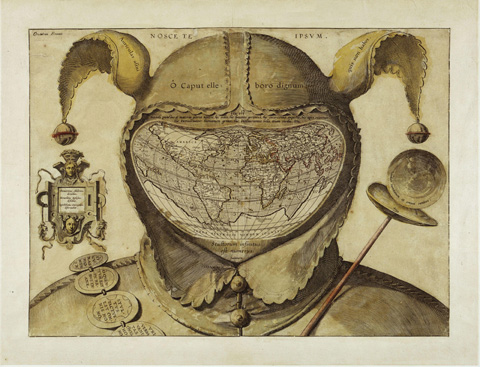
One obvious take away from our discussion of future forecasting over the last two weeks is that the future has not, does not, and will not occur in a vacuum. Change occurs in a complicated world populated by myriad contexts. But how do we explain these contexts effectively, especially if, in our view, the fundamental structures of the international system are currently undergoing comprehensive, paradigm-shifting change? What constructs or frameworks have maximum explanatory power, not only when it comes to characterizing all this change properly, but also in helping vector our responses well?
Geopolitics, as an explanatory construct and how-to guide for harried foreign policy establishments, has historically taken pride of place here. Indeed, the vocabulary of international relations is saturated with long-familiar geopolitical terms. But, and it’s an important “but” here, are the conceptual baggage and analytic vocabulary first bequeathed to us by Friedrich Ratzel and Halford Mackinder as applicable today as they once were? And what about the actual manifestations of this conceptual baggage – e.g., the traditional geopolitical arrangements, contours and rules of the road that have served us so well in the modern era? Are they now being irretrievably stressed, strained and changed by circumstances around them or are they managing “to hold the line”? Needless to say, members of the geopolitical school feel that any declarations of their theoretical and actual demise are flat out absurd. There are Great Games occurring all around us, they argue. The Arab Autumn, the testy and varied actors vying for influence around Pakistan-Afghanistan, the complex resource politics of Africa, the territorial rush to claim the melting Arctic by self-described Nordic states – what are these phenomena if not 21st century examples of the Great Game?
Indeed, they are real examples of this time-honored political phenomenon and we will look at all of them next week in some detail. However, these confirmations of the continued relevancy of geopolitical thinking and geopolitics itself do not mean that that the geopolitical school of international relations is not divided over just what geopolitics means and represents. Is classical geopolitical thought just as applicable today as ever? Is geopolitics just another word for Western political hegemony? To break free from this hegemony, must we develop genuinely non-Western geopolitical forms? Are such forms actually possible? And will they account for the structural changes occurring in the international system in more accurate and user-friendly ways? As we discussed last week, there are several schools of thought on all these geopolitical issues. This week, we turn to colliding geopolitical approaches in potential new ‘Great Games’ throughout the international system.

